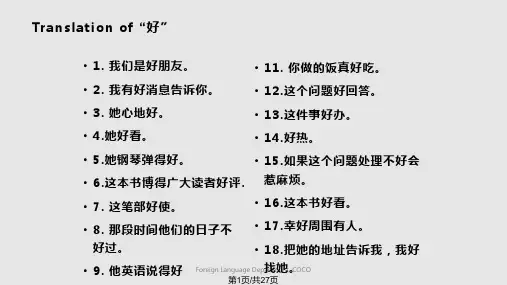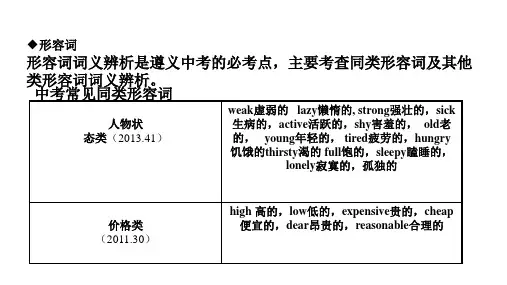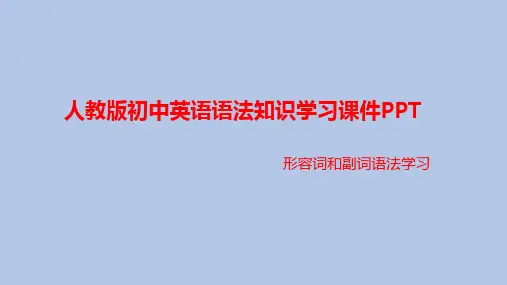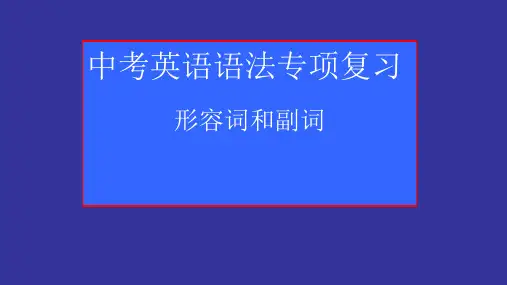高频考向二
副词
、疑问副词等。 ① 时间副词 通常用来表示动作发生的时间。常见的时间副词有now, today, tomorrow, yesterday, before, late, early, never, seldom, sometimes, often, usually, always等。 ②地点副词 通常用来表示动作发生的地点。常见的地点副词有here, there, inside, outside, home, upstairs, downstairs, anywhere, everywhere, nowhere, somewhere, down, up, off, in, out等。
形容词作宾补时,应放在宾语之后,表示 宾语的性质、状态等。如: He always makes us happy. 他总是使我们高兴。 ⑷注意点: ①表示长、宽、高、深及年龄的形容词,应放在相应的名词 之后。如: How long is the river?It’s about two thousand metres long.这条 河有多长?大约2000米长。 ②只能作表语的形容词:afraid害怕;alone独自的;asleep 睡 着的;awake醒着的;alive活着的;well健康的;ill病的; frightened 害怕的。如: The man is ill.(正) The ill man is my uncle.(误)
③方式副词 一般用来回答“怎样的” ly 构成,少数与形容词同形。常见的方式副词有badly, carefully, proudly, suddenly, successfully, angrily, happily, slowly, warmly, wildly, well, fast, hard, alone, high, straight等。 ④程度副词 多数用来修饰形容词和副词,少数用来修饰动词和介词短语。 常见的程度副词有much, (a) little, a bit, very, so, too, enough, quite, rather, pretty, greatly, nearly, almost, deeply, hardly等。 ⑤疑问副词 一般引导特殊疑问句。常见的疑问副词有how, when, where, why等。


![初中英语形容词和副词课件[优质PPT]](https://uimg.taocdn.com/1696a6d45ef7ba0d4a733b45.webp)







